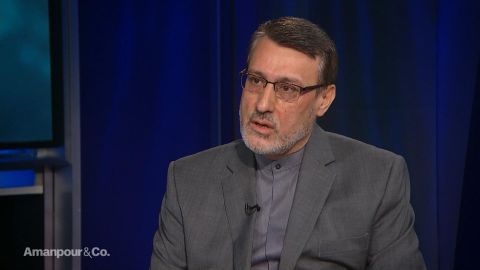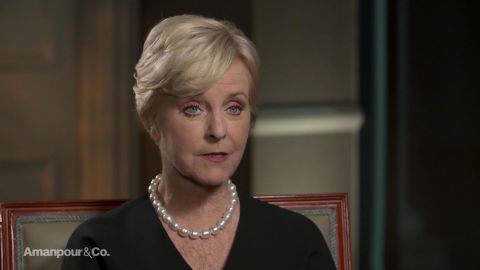Read Transcript EXPAND
CHRISTIANE AMANPOUR: So, it looks like things are getting serious again in terms of rhetoric from the United States towards Iran. First and foremost, the Secretary of State, administration, is trying to lay the groundwork it seems that you, Iran, are indelibly connected to al-Qaeda. What is your response to what he said about hosting post 9/11, allowing them to transit?
HAMID BAEIDINEJAD, IRANIAN AMBASSADOR TO THE U.K.: I agree with you that they are intensifying some parts of rhetorics. But these kinds of allegations that Iran has had some links with al-Qaeda is not a new thing. They have made these numerous times and we have always rejected this. But unfortunately, the U.S. wants to always increase the pressures and have some rhetorics up, they would raise this issue normally, but this is not new to us.
AMANPOUR: It’s not new to you. In fact, there were some al-Qaeda inside Iran after 9/11. I mean, just explain what was going on, including one of the sons of Osama bin Laden.
BAEIDINEJAD: As I said, there have been always some allegations that, in fact, had not been any — they have not been substantiated. But what we have very clearly mentioned from the U.S. authorities, I advised Secretary Pompeo to consult Hillary Clinton because she was rather very clear in her enunciations the United States has created, in fact, this group back to the Soviet occupation period when they hired Osama bin Laden and, in fact, gave the necessary advanced equipment to Osama bin Laden and those Jihad groups, which then created this al-Qaeda. So, that was the creation of the United States.
AMANPOUR: That was way back in ’80s when the United States was supporting the Islamic militants, the Mujahideen, against the Soviet occupation during the Cold War. But you’re hearing what they’re saying, you admit they’re ratcheting up and it’s getting more heated in public. You heard Senator Rand Paul say what — that he doesn’t — he’s concerned about the use of this connection. Do you fear that there is an attempt to ratchet up conditions to start a campaign to take on Iran militarily?
BAEIDINEJAD: Normally, that should be in this manner. But what we see from the United States that there is no coherent policy by the United States. So, they can increase their rhetorics in one place, but forget about how to implement those stated policies in practical terms.
About This Episode EXPAND
Christiane Amanpour speaks with Hamid Baeidinejad in an excliusive interview about the US’s unprecedented decision to designate Iran’s Revolutionary Guard Corps a terrorist organization. She also speaks with author Emily Bazelon about the role prosecutors play in America’s mass incarceration crisis. Hari Sreenivasan speaks with Cindy McCain about her work fighting human trafficking.
LEARN MORE


